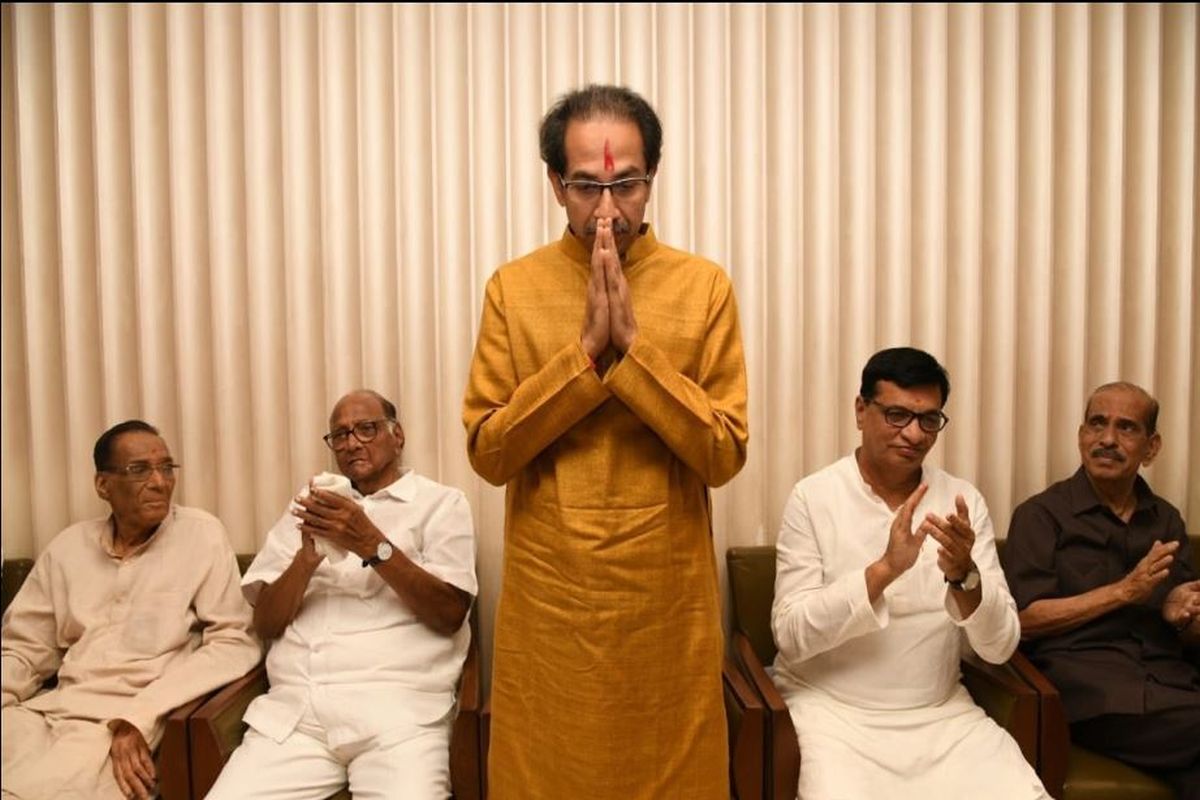As Maharashtra gears up for the upcoming assembly elections, the Maha Vikas Aghadi (MVA) alliance has made a significant move by finalising a seat-sharing formula. The MVA, comprising the Shiv Sena (Uddhav Balasaheb Thackeray), Nationalist Congress Party (NCP), and Congress, has agreed that each of its major constituents will contest at least 85 of the 288 assembly seats. This development is more than just a mathematical adjustment ~ it symbolises the alliance’s determination to present a united front against the ruling Bharatiya Janata Party (BJP) and Eknath Shinde’s faction of the Shiv Sena.
The 85-85-85 formula, while giving each of the three parties a sizable stake in the elections, also reflects the importance of collaboration within the MVA. The alliance has managed to hold together despite internal differences and external pressures. Given the complexities of Maharashtra’s political fabric, this seat-sharing agreement underscores the MVA’s commitment to ensuring that no major constituent feels sidelined. It’s a strategic effort to maintain a balance of power, ensuring that each party has enough seats to stay politically relevant, while also leaving room to negotiate with smaller allies such as the Peasants and Workers Party (PWP) and the Samajwadi Party. However, the process of finalising candidates is not without its challenges.
Advertisement
Shiv Sena (UBT) has already released a list of 65 candidates, but party leader Sanjay Raut acknowledged that “corrections” are needed due to some seats being earmarked for other alliance partners. Such adjustments are not uncommon in multi-party coalitions, especially when the alliance seeks to avoid clashes that could weaken its collective strength. The ability to correct course shows flexibility, a critical factor in ensuring unity as the election nears. The fielding of candidates in key constituencies is another intriguing aspect. By positioning Kedar Dighe, nephew of late Anand Dighe, the former mentor of chief minister Eknath Shinde against the CM, Shiv Sena (UBT) is not just fielding a candidate but sending a clear message. The contest between Mr Dighe and Mr Shinde is more than a personal rivalry; it is a battle for political legacy in Thane, a region that has long been a stronghold of the Shiv Sena. Similarly, the candidacy of Mr Varun Sardesai, cousin of Mr Aaditya Thackeray, in Bandra East reflects the UBT Sena’s determination to consolidate its influence in areas where it faces stiff competition from both traditional rivals and newer forces, like Raj Thackeray’s Maharashtra Navnirman Sena (MNS).
As the MVA heads into the final phase of preparations, the alliance’s ability to navigate internal challenges and coordinate with smaller allies will be crucial. With less than four weeks until polling, the focus is on unity, strategy, and candidate selection. The election will test the MVA’s ability to withstand the BJP-Shinde challenge, and the 85-85-85 formula could be the key to creating a cohesive front capable of leveraging its combined strength to secure a significant portion of the assembly seats.
